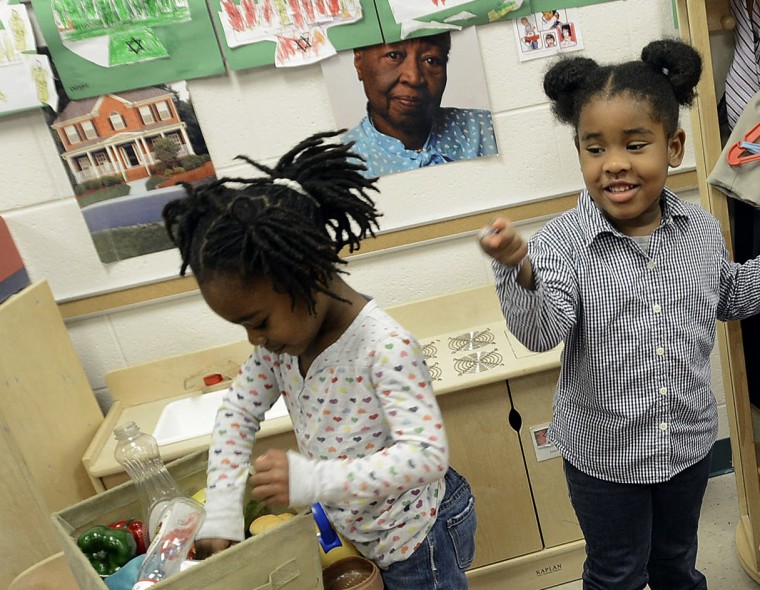If President Obama has it his way, every child in America will be able to attend a high-quality preschool.
The commander-in-chief urged just such an initiative during his State of the Union address on Tuesday night, pointing to studies that show the sooner kids begin learning, the better they do down the road
"But today, fewer than three in ten 4-year-olds are enrolled in a high-quality preschool program," said Obama. "Most middle-class parents can't afford a few hundred bucks a week for private preschool. And for poor kids who need help the most, this lack of access to preschool education can shadow them for the rest of their lives."
Besides helping kids, the move would be a big plus for working moms and two-income families. After all, times have changed. According to the Center of American Progress, more than half of families in the U.S. had a male breadwinner and a female homemaker in 1975. That's dropped to just one in five today.
To top it off, those without a full-time parent caretaker with kids under five spend an average of 10.1% of their household budget on childcare. It's a tough squeeze on low-income families—defined as those making less than $1,500 per month and end up spending 52.7% of their income on child care expenses for children under the age of five.
Adele Robinson, deputy executive director for policy and public affairs at the National Association for the Education of Young Children, told msnbc.com that she was thrilled to see early childhood attention getting so much national attention. She said universal preschool would be beneficial to both working women and their employers.
"When women don't have stable early childhood arrangements, they become less stable employees," she said "...The more children we leave behind, the more expensive it is to close the [education] gap"
Linda Meric, the national executive director of 9to5, an organization dedicated to ensuring the rights of women, applauded Obama's decision, noting "The average cost of childcare ranges from $3,900 to $11,700 annually, often making it impossible for women in low-wage jobs to make ends meet."
Robinson said one of the biggest hurdles, however, would be the ongoing budget battle and the sequester, a collection of automatic, across-the-board spending cuts.
"We have to avoid the sequester. we can't move an [education] agenda on the backs of large cuts," she said.
But what would such a plan entail and what would its economic impact be? Well, we don't really know. Obama did not go into detail on how much the government would shell out or what "high-quality" preschool entails.
According to the National Institute for Early Education Research at Rutgers University, 45% of 4-year-olds and 20% of 3-year-olds went to state or federally funded preschool programs in 2011. That cost taxpayers about $5.49 billion, which averages out to about $4,800 for each child. So assuming costs stayed roughly the same, Obama's initiative would easily cost tens of billions of dollars a year. Proponents of universal preschool, however, argue much of the cost would be offset by having more parents in the workforce.
Steve Barnett, director of NIEER, told msnbc.com that the "increase in earnings by [parents going back to work] themselves could probably cover the costs of the program. American women pay a high price, not just time out of the labor force immediately, but over the course of a career." He expressed concerns, however, that inside the Beltway politics may interfere with passing meaningful legislation.
"Outside the Beltway, it's a non-partisan issue," he said, pointing to right-leaning, low-income states like Alabama and Mississippi --where residents would actually benefit the most from universal preschool.
"It will depend on setting priorities," said Barnett.
